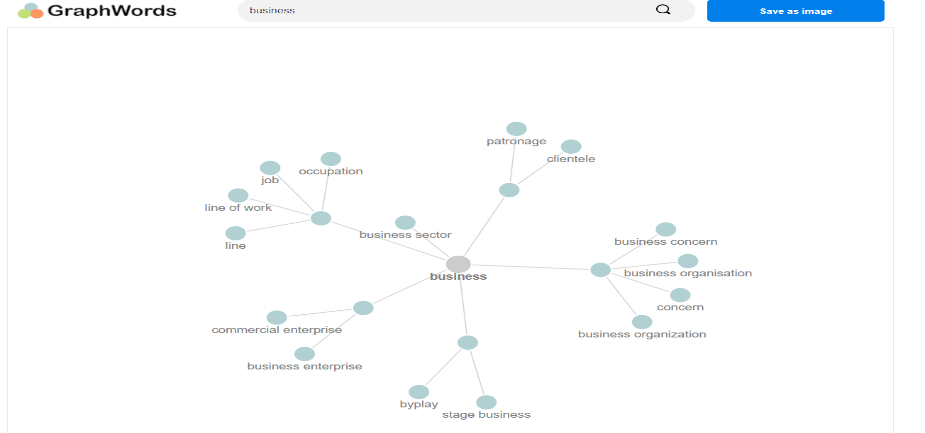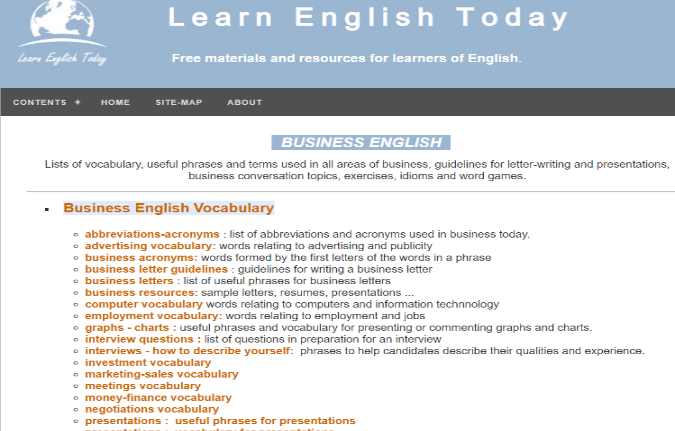Abstract
In order to achieve competitive advantage in the business world, mastering business communication skills in English is of paramount importance for high-flying professionals all around the globe and the main goal of Business English courses is to equip them with all the necessary language skills. Due to ever-changing life conditions, business circumstances and teaching environment, designing Business English courses is quite a challenging task. With the intention to contribute to the field of Business English teaching methodology our research is focused on teaching business English vocabulary, as being one of the essential ingredients of language in general and both receptive and productive language skills. This paper outlines the position of ESP in the global context, analyses models of teaching vocabulary in Business English course books and other teaching materials and aims to provide some recommendations on how to adopt vocabulary teaching and learning methods to various learners’ needs and preferences in traditional, blended and online teaching surrounding.
Keywords: Business English, communication skills, teaching methodology, teaching vocabulary
Introduction
Since it is the polygon on which global language and market influences and needs encounter Business English is multidimensional field of study. Due to the ongoing changes in both language and business domains, Business English teaching is constantly in the focus of ELT potentially and researchers. As business communication skills in English are essential for the success in the modern business world, Business English courses are in demand all around the world. Searching for the best models how to improve teaching methodology and adopt it to various teaching environment and global language requirements is one of the current priorities of language teaching methodologists. The Internet with online teaching platforms and the whole range of online teaching resources and materials which are available to teachers and students all the time have changed the overall concept of traditional teaching. Apart from face-to-face teaching, blended and online teaching models are regularly used in modern education. Our aim in this paper is to provide some practical models on how to approach teaching vocabulary in BE courses in the modern sociolinguistic circumstances, and we will present our findings within the framework of relevant theoretical background. Hopefully, the results of our research may be helpful to all those who are interested in further analysis of this topic.
Problem Statement
Due to the need for language knowledge specialization in the English language courses back in 1960, ESP courses emerged. Since then they have been constantly going through various changes in accordance to the global business and language trends and demands (Hutchinson & Waters, 1998). Nowadays Business English courses are the least specific ESP courses and they may be labelled as English language courses for general business purposes (Budinčić, 2017; 2021). They are attended by employed people who are doing various jobs in the business field and by undergraduate students who are preparing for their future careers at various Faculties, but they are also a part of programs in some high schools. Since the field of Business English may be divided into many subfields in terms of students’ needs, education, knowledge and alike and classes may be organized in traditional, blended and online form, business English teaching should be considered in the light of all those various factors (Ahmed, 2014; Beatty, 2010; Bulatović et al., 2018; Cvetković, 2018; Prtljaga & Gojković Radić, 2018, Popović, 2018). The focus of our research is vocabulary teaching in Business English classes. In order to provide overall theoretical background, prior to analysis, in this chapter we will consider the following aspects of this topic: teaching vocabulary in general and business English classes, specifics of teaching ESP vocabulary, teaching vocabulary in the context of various language skills and teaching intermediate and advanced classes.
Research Questions
Most of the theoretical and practical aspects of general vocabulary teaching may be applied to teaching specialized vocabulary in Business English, as well. However, there are some issues that should be taken into account when it comes to ESP terminology. According to Dudley-Evans and St. John (1998) there are two classes of ESP vocabulary: (1) Semi-technical vocabulary: Vocabulary that is used in general language but has a higher frequency of occurrence in specific and technical descriptions and discussions and (2) Technical vocabulary: Vocabulary that has specialized and restricted meanings in certain disciplines and which may vary in meaning across disciplines; while Baker (1998) puts ESP vocabulary into the following groups: (1) Items which express notions general to all or several specialized disciplines, e.g. factor, method, function., (2) Items which have specialized meanings in one or more disciplines, in addition to a different meaning in general language, (3) Items which are not used in general language but which have different meanings in several specialized fields, (4) Items which are traditionally viewed as general language vocabulary, but which have restricted meanings in certain specialized disciplines, (5) General language items which are used, in preference to other semantically equivalent items, to describe or comment on technical processes and functions.
Teaching business vocabulary turns out to be particularly demanding due to the fact that terminology from some specific domain may be unknown in mother tongue and teachers may not be familiar enough with the specific field. The most terminology in particular language areas in languages worldwide comes from English, which requires the approach in teaching based on contrastive analysis. For example, explicit attention should be paid to false friends, collocations, synonymy, etc (Budinčić & Dabić, 2017).
Purpose of the Study
In order to master foreign language in the process of language learning it is important to develop all language skills. Depending on the students’ needs ESP courses will be focused on some skills more than to the others, but teaching lexis and grammar are essential elements of each language course. As it was believed that complexities of the meaning of words were too great and could not be adequately taught in the class ‘vocabulary has been neglected in programs for teachers during much of the twentieth century’ (French Allen, 1983, p. 1). However, for a successful communication it is necessary to have firm command of both grammar and vocabulary, and because of that in the best EFL classes, neither grammar nor vocabulary should be neglected (French Allen, 1983). Students who do not learn grammar along with vocabulary will not be able to use the language for communication. Even material in which all the words look familiar may be impossible to understand if the grammatical constructions have not been learned. (French Allen, 1983).
Teaching vocabulary usually takes place in relation to reading and listening tasks. In such an approach students meet new language in realistic context and it helps them in the process of learning and acquisition (Scrivener, 2005). Vocabulary tasks occur before, while and after students read or listen.
Some common pre-teaching tasks which can be found in coursebooks are (Scrivener, 2005): matching the words with pictures, checking the meaning of the words in the dictionary, matching the words with the definitions, brainstorming words on a set topic, dividing these words into two groups, labelling the items in a picture with the right names, completing gapped sentences with words from a list, discussing a topic (that will feature in a text), saying which words (from a list) you expect to be in a text about (Scrivener, 2005). During listening or reading work teachers may deal with an item when student specifically asks about it, give brief, to-the-point explanation or translations, rather than detailed presentations, or sometimes refuse help and tell students to do their best without knowing some items (Scrivener, 2005). Lexical practice activities and games which follow after the listening and reading tasks usually are: discussions, communicative activities and role-play requiring use of the lexical items and making use of lexis in written tasks (Scrivener 2005). In the process of teaching lexis teacher’s tasks is to provide various activities in which students will encounter specific terminology (Hutchinson & Waters, 1998).
It would be useful to plan lessons that allow students to constantly meet the same items in use in different texts, recordings, conversations, etc. and notice them in new combinations with different surroundings with different uses, and then have repeated opportunities to try using the items themselves (Scrivener, 2005, p. 249).
Combination of all those tasks may ensure the variety and success in the teaching process. Expanding vocabulary may advance all language skills, since it is the main carrier of meaning in all receptive and productive language forms. The main distinctive feature between General English and ESP is lexis. Besides, in various ESP fields there is a tendency to favour particular verb and noun forms, which means that the focus of teaching should be on them. Language forms which are most frequently found in real business situations are given high priority in the process of ESP teaching. Various aspects and layers of meaning that each lexeme carries, makes teaching vocabulary quite a demanding task for each general and business English teacher.
In order to keep students’ interest in language learning and motivate them to engage in this process it is important to use reading and listening materials which are based on current news. Reading and listening tasks may be followed by speaking exercises, debates, presentations, and many other activities (Popović, 2018). Easy access and availability of online newspapers and listening materials makes them a very practical tool for increasing students reading and listening competence as well as improving their overall English language skills. Specialized corpora are likely to contain more frequent and regular lexical and grammatical patterns than general corpora (Popović, 2018).
Research Methods
Approaches to teaching general English vocabulary
‘Vocabulary can be defined, roughly, as the words we teach in the foreign language’ (Ur, 1997, p. 60), while the concept of lexis usually refers to our ‘internal database’ of words and complete ‘ready-made’ fixed/semi-fixed/typical combinations of words that we can recall and use quite quickly without having to construct new phrases and sentences word by word from scratch using our knowledge of grammar’ (Scrivener, 2005, p. 227). Lexis include: single word vocabulary items, common ’going-together patterns’ of words, i.e. collocations; longer combinations of words that are typically used together as if they were a single item – they are commonly referred to as chunks or sometimes as multiword items. We could argue that collocations and chunks occupy an intermediate position between vocabulary and grammar (Scrivener, 2005). Many students are aware of the importance and communicative power of lexis, which usually motivates them to learn large number of words. However, vocabulary acquisition is quite a challenging task and requires a lot of effort (Scrivener, 2005). In order to facilitate the process of vocabulary acquisition it is important to find most appropriate teaching methodology. Teaching lexis involves several aspects: form (pronunciation and spelling), grammar, collocations, aspects of meaning: denotation, connotation, appropriateness, aspects of meaning: meaning relationships (synonyms, antonyms, hyponyms, co-hyponyms or co-ordinates, superordinates, translation), word formation (teaching common prefixes and suffixes), another way vocabulary items are build, i.e. by combining two words (two nouns, or a gerund and a noun, or a noun and a verb) to make an item (Ur, 1997); and the most commonly used ways of presenting the meaning of new items are: concise definition (as in a dictionary), detailed description (of appearance, qualities and alike), examples (hyponyms), illustration (picture, object), demonstration (acting, mime), context (story or sentence in which the item occurs), synonyms, opposite(s) (antonyms), translation, associate idea.
Approaches to intermediate and advanced learners in vocabulary acquisition
Business English courses are attended by learners of various age and language competence and each of those courses should be tailored in a different way, to suit learners abilities, habits, preferences etc. In this segment of the paper we will consider some pecularities in teaching vocabulary to intermediate and advanced learners, as Business English courses are most frequently attended by those language groups.
Students motivation in ELT is an ever popular issue, since it is a prerequisite for a successful classes and language skills improvement of each individual. To motivate students for learning is a particular problem in many intermediate classes. Intermediate students have become aware of the difficulties in language learning, ‘their efforts may bring less satisfaction, fewer rewards’. When students come to this level they need activities which ‘offer immediate reward for making an effort to learn’ (French Allen, 1983, p. 67). In order to provide learning conditions which will be most beneficial for intermediate students teachers should prepare activities which will keep students minds alert. On the other hand, advanced students have a good command of English language and they are at the end of their formal language education. In advanced classes, teachers have two major aims: One is to prepare students for the kind of English used by and for native speakers and the other aim is to help students become independent, responsible for their own learning (French Allen, 1983). Teachers’ task is to provide the conditions which will meet all these students’ needs. As online resources are rich with diverse materials, ESP teachers may use them to suite some of these needs. Teachers should be aware of special needs of their students and accordingly opt for most suitable teaching models. For example, games for vocabulary learning such as crossword puzzles would be suitable for students who lack motivation, and authentic materials would be appropriate for advanced learners who need exposure to English language used in real everyday situations. Advanced students are supposed to continue language learning independently in the future, so teachers should instruct them on some useful techniques for dealing with the new language items, i.e. how to use dictionaries in the most effective way, how to recognize the relation between affixes, functions of words in the sentences and alike.
Findings
Our analysis of resources for teaching Business English vocabulary will be focused on: vocabulary teaching resources in Business English coursebooks and online vocabulary teaching resources. The aim is to describe those resources and provide some suggestions on how to use them in the most effective way in business English courses.
Vocabulary in coursebooks
In traditional coursebooks new vocabulary is introduced through various exercises which are usually related to some reading or listening tasks. For example, Market Leader coursebook series is based on authentic materials from Financial Times and contemporary topics and provides exposure to authentic language from the variety of fields in the business world. Unfortunately, the articles in textbooks become dated very quickly. Which means that teachers who are mostly focused on coursebooks in their classes often have to supply additional up-to-date resources and relevant topics in order to motivate students and enhance the success in language learning process (Popović, 2018). Vocabulary exercises in these coursebooks usually are created as tasks in which students should match the words with the definitions and complete gapped sentences with words from a list. Market Leader coursebook series offers some extra teaching materials on their website.
Online resources
Nowadays online resources for vocabulary teaching are very rich and one of the main ESP teachers’ tasks is not any more to create teaching materials, but to find the most suitable ones for their classes (Budinčić, 2017). In the following part we will describe several online resources which can be very useful for business English vocabulary teaching with some suggestions how to use them in the most effective way. All of these resources are suitable for the use in all teaching formats – traditional, online and blended. They are suitable for the use in the classroom, but they can be used for self-studying as well.

1. GraphWords. This website offers the possibility to learn the whole range of new business words which are related to each other. For example, some brainstorming sessions may be accompanied with this kind of exercises and foster vocabulary expansion (Figure 1). Besides, in various kinds of individual, pair or group activities students may be asked to make their own graphs for some key business words. This kind of vocabulary acquisition, which follows the model of mind mapping, is very useful as it helps students to learn new words in connection to some other words, which facilitates memorizing.
2. Learn English Today: https://www.learn-english-today.com/business-english/A-business-english-contents.html
This website provides list of business words with definitions, vocabulary games, crosswords and alike (Figure 2). Students may read explanations of new words and practice their use through various games and crossword puzzles.

3. Business English Pod: https://www.businessenglishpod.com/category/vocabulary/
This website offers audio and video materials for learning business English (Figure 3). It is focused on vocabulary learning and offers lessons for vocabulary in various areas: marketing, finance, sales, legal English, international trade, project management, human resources etc. It contains transcripts for audio materials, listening questions, quizzes and extra practice. This kind of exercises provide exposure to authentic language and can be used as extra exercises in business courses for various levels.

4. Business English e-book: https://www.businessenglishebook.com/Business-English-Banking-Quiz-One.htm and https://www.businessenglishebook.com/business-english-vocabulary/
This website provides sections for vocabulary in different business fields focusing on idioms, slang, jargon, but also on numbers, fractions, lessons on language use in various business situations, quizzes and alike (Figure 4). It can be used as an additional resource in business English language learning.

In Business English courses, decision making for materials design is largely up to the teachers. Providing various exercises for all language skills should be one of the important factors to ensure the success in language learning process. In order to foster the understanding of terminology and important concepts which are part of some business field, the corpora selected for reading and listening tasks should provide content which will facilitate the understanding of the important terminology, business concepts etc. Systematic approach which takes into account age, preferences, current interesting topics and alike may enhance the overall process of language acquisition. Designing and selecting exercises which give students the opportunity to encounter target vocabulary in various contexts in written and spoken form may ensure the success of the learning. Terminology from the business field should be taught with the particular attention.
Methodologists agree that it is of paramount importance to set tasks in a way which will make students want to learn unknown words. That can be achieved by assigning listening, reading, speaking or writing tasks with the topics of interest for students, but that may be quite a challenge when it comes to ESP courses as those materials have to provide exposure to relevant business language at the same time. The similar motivational effect may be achieved by assigning some challenging competitive tasks. Among the other things, the aim of the teaching process, particularly on higher levels, should be to encourage autonomous learning, while the employment of variety of approaches in the teaching process may ensure vocabulary expansion and the success of the overall language learning process on all levels. It is important to develop techniques for helping students learn vocabulary on their own. In all those websites vocabulary is put into various functions through reading and listening tasks, which create motivation. Apart from these websites students may be instructed to expand Business English vocabulary by watching business documentaries, read newspapers on business issues, listen podcasts (Budinčić, 2017). Great potential for language learning can be found in language learning applications. New generations are fond of using them in their everyday life, so applications can be very useful tool in the process of language learning. They offer exposure to authentic business English language at hand -https://www.fluentu.com/blog/business-english/learn-business-english-app/
Conclusion
The demand for knowledge of English in general business domain is constantly increasing and at the same time the challenges for all the teachers who want to follow global teaching and business trends are coming into sight. The question how to improve teaching methodology in this field is regularly studied from theoretical and practical aspects by English language teaching methodologists. Systematic approach to teaching, among other things, includes course design which is based on relevant research findings and learners’ needs analysis. The selection of various teaching materials and their regular revision are essential for the success of the course. The development of each skill in foreign language should be approached in a systematic way and in this paper we considered various peculiarities in the field of teaching lexis, which is one of the essential elements of language. As Business English is multidimensional field of study, the methodology of teaching in this ESP field should take into consideration various sociolinguistic factors. Considering theoretical and practical dimensions of teaching Business English vocabulary we came upon several conclusions. Providing various exercises for all language skills should be one of the main ways how to achieve success in teaching process. Rich online resources should be employed as much as possible, and particularly phone applications which can be very helpful language learning tool for new generations. Finally, encouraging autonomous learning and employment of variety of approaches in the teaching process may ensure vocabulary expansion and the success of the overall language learning process.
References
Ahmed, M. K. (2014). The ESP Teacher: Issues, Tasks and Challenges in English for Specific Purposes World. Retrieved April 30, 2022 from https://www.researchgate.net/publication/281345731_The_ESP_Teacher_Issues_Tasks_and_Challenges
Baker, M. (1988). ‘Sub-technical Vocabulary and the ESP Teacher: An analysis of Some Rhetorical Items in Medical Journal Articles’. Reading in a Foreign Language, 4(2), 91-105. https://www.academia.edu/662239/Sub_technical_vocabulary_and_the_ESP_teacher_An_analysis_of_some_rhetorical_items_in_medical_journal_articles
Beatty, K. (2010). Teaching and Researching Computer Assisted Language Learning (2nd Ed.).
Budinčić, & Dabić. (2017). Insights into Terminological Anglicisms in ESP Teaching. Scientific Bulletin of the Politechnica University of Timisoara, Transactions on Modern Languages, 16(1), 69-78. Тimisoara: Politechnica University of Timisoara.
Budinčić, V. (2017). Web-based Teaching Resources for Business English Classes. Professional Communication and Translation Studies’ (PCTS 10), 10, 165-172. Department of Communication and Foreign Languages at Politechnica University of Timisoara.
Budinčić, V. (2021). Теаching Advanced Business English Writing Skills in the Digital Environment. Scientific Bulletin of the Politechnica University of Timisoara, Transactions on Modern Languages, 20(1), 93-99. Politechnica University of Timisoara.
Bulatović, Gak, & Borković. (2018). Blended learning in teaching ESP. Teacher Education Faculty.
Business English e-book (2022). Banking Quiz for Business English. Retrieved on April 29, 2022 from: https://www.businessenglishebook.com/Business-English-Banking-Quiz-One.htm
Business English Pod (2022). Business English Vocabulary Lessons. Retrieved on April 30, 2022 from: https://www.businessenglishpod.com/category/vocabulary/
Cvetković. (2018). Pedagogic suggestions for ESP practicioners. Teacher Education Faculty.
Dudley-Evans, & St. John. (1998). Developments in English for specific purposes: A multi-disciplinary approach. Cambridge University Press.
French, Allen. (1983). Techniques in teaching vocabulary. Oxford
GraphWords (2022). Retrieved on April 29, 2022 from https://graphwords.com/
Hutchinson & Waters. (1998). English for Specific Purposes. Language Centered Approach. Cambridge University Press.
Learn English Today. (2022). Retrieved on April 30, 2022 from https://www.learn-english-today.com/business-english/A-business-english-contents.html
Popović. (2018). The role of newspapers in teaching legal English. Teacher Education Faculty.
Prtljaga & Gojković Radić (2018). Metodičke specifičnosti nastave stranog jezika struke [Methodological specifics of teaching a foreign language of the profession]. Teacher Education Faculty.
Scrivener. (2005). Learning Teaching. A guidedbook for English language teachers. Macmillan.
Ur. (1997). A Course in Language Teaching. Practice and Theory. Cambridge University Press.
Copyright information

This work is licensed under a Creative Commons Attribution-NonCommercial-NoDerivatives 4.0 International License.
About this article
Publication Date
12 October 2022
Article Doi
eBook ISBN
978-1-80296-957-3
Publisher
European Publisher
Volume
4
Print ISBN (optional)
-
Edition Number
1st Edition
Pages
1-399
Subjects
Teaching methods, language for specific purposes, business English, translation studies, applied linguistics, intercultural business communication
Cite this article as:
Budinčić, V. (2022). Theoretical and Practical Aspects of Teaching Business English Vocabulary in EFL Classes. In V. I. Karasik, & E. V. Ponomarenko (Eds.), Topical Issues of Linguistics and Teaching Methods in Business and Professional Communication - TILTM 2022, vol 4. European Proceedings of Educational Sciences (pp. 54-63). European Publisher. https://doi.org/10.15405/epes.22104.7

